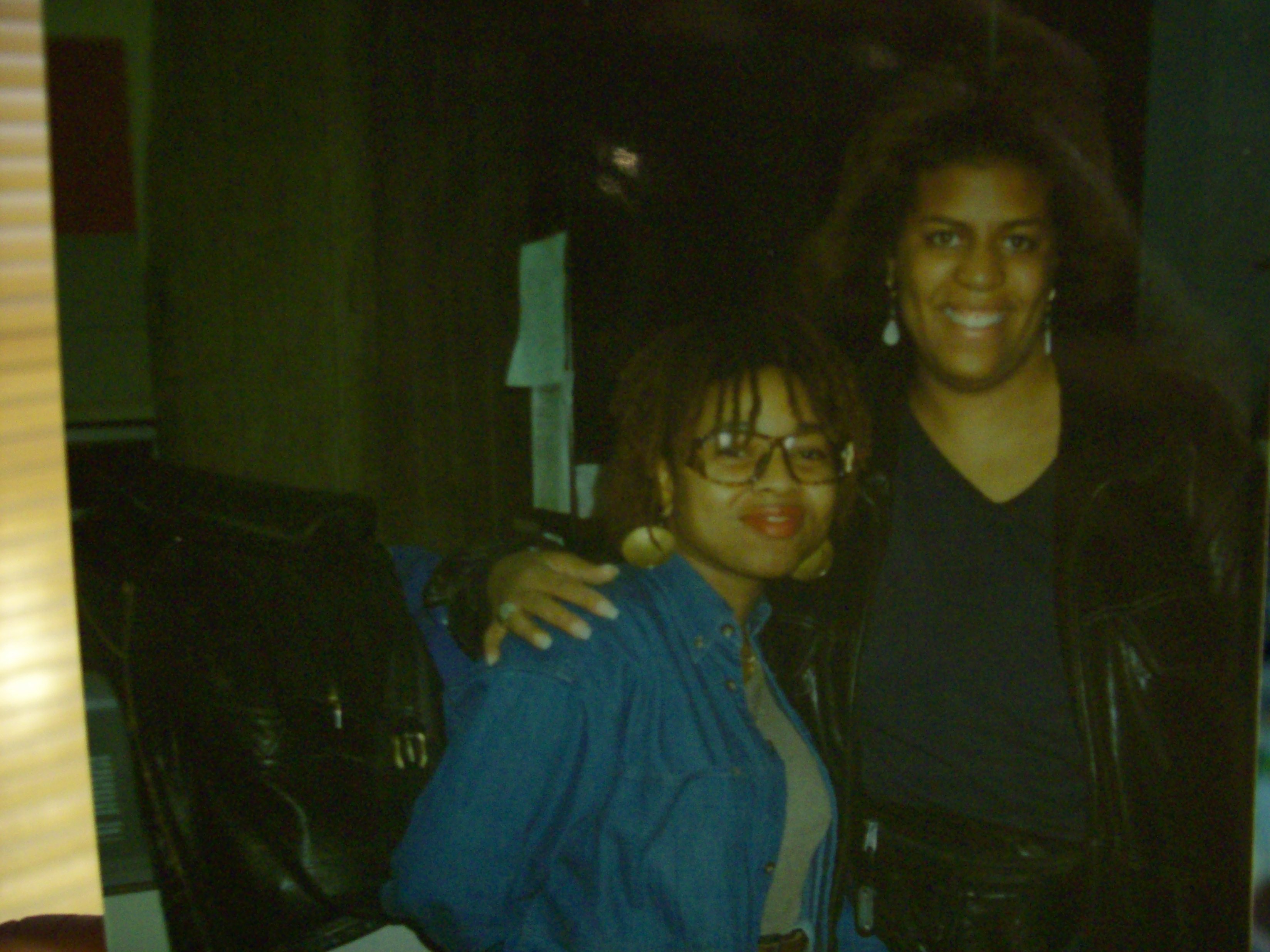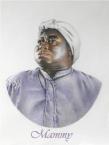Yesterday educator and civil rights icon Dorothy I. Height died. She was there with Martin Luther King. She was there before him fighting for racial and gender equality. She was on the frontlines. Among several involvements, Height was a member and past president of the National Council of Negro Women, a member and past national president of Delta Sigma Theta Sorority Inc. and a presidential adviser. Height was 98. With her death and the recent death of former NAACP leader Benjamin Hooks, someone asked the question, “Who will lead us?” And I thought of my girl Kim, one of my oldest, closest and dearest friends.

Me and Kim at the airport on her way to South Africa-February 1996
Kimberly Ann Trent is a civil rights icon in her own right. Currently a director for Michigan Governor Jennifer Granholm, she’s worked for two members of US Congress, been a journalist, is extremely active with the Democratic Party and Delta Sigma Theta’s political action committee, organized the campaign to keep affirmative action as the law in Michigan and sits on too many boards to name. She is a true Renaissance woman who does what she does not to be seen and heard but so others can be seen and heard. Though she comes from a highly educated middle class family and has studied abroad in Finland and South Africa, she has a heart for the oppressed, whatever the oppression is. She’s been this way for as long as I’ve known her and that’s been since we were 14, but we didn’t get close until college.
While at Wayne State University in Detroit we dreamed of a better world and what our role would be in it. We were young, certainly not dumb but we wanted to be deeper than we were. A voracious reader, Kim mostly decided what we would read and intellectual bell hooks was at the top of our list. Some Saturdays (depending on what we did Friday night) we would sit and read and then discuss what we read. I remember taking Sisters of the Yam on our trip to Jamaica and between sightseeing and beach parties, we actually read on our hotel balcony and while chilling on the beach.
Our reading together, trips together, working together (summers at The Detroit News), and ‘all the time’ talks together created a deep bond that some just couldn’t understand, especially our sorors (I am a member of the Alpha Kappa Alpha Sorority, Inc.). We would say we were going to be national president of our organizations and seek to implement joint national programs. And to get each other’s attention across campus we would mix our sorority calls (Skee-oop, I would say. Ooo-skee, she would say). This was the late ’80s and ’90s. In this last decade we haven’t hung as much because our lives leave little time for leisure. But Kim in all her busyness never forgets her friends. She never forgets me. She always celebrates my birthday and has helped to host my baby showers. We talk at least once a month and even hung out for a few hours last Friday without a big rush and without our children. It was then that I felt we were young again, and I remembered my poetic tribute to her. I share this with you now to celebrate one of my best friends, civil rights icon Kimberly Ann Trent:
SISTER LOVE
For Kimmie
A stash of my sashes, those tools to prop me up,
are in medicine cabinets and books, the bible to be exact.
But there’s one place I find comfort, where books don’t compete
or taking drugs, when I’m fiend, leaves me feeling incomplete
I need to push a button, the one marked primary
at the top of my telephone
to send an alert to my friend, the one who keeps me moving,
strolling, yes, staying strong.
Always on the case, my saving grace,
she perfects the race to be young, gifted and black.
She got my back from way back,
that’s how I know she’s beautiful.
And I told her, her statuesque body
taking command as she stands and I delight
in her insight and share her thoughts with others.
And no joke, this is not for the rhyme but my brother
said one time, “What doesn’t Kim say?”
I blushed and agreed because I did repeat
a lot of what she said
like with a childhood crush
or results of a sugar rush to the head
I was and still am impelled by Kim.
Sounds like a love story, that’s right, it is.
Sister love is the theme and Kimberly Ann Trent has laid out the scene
Even when she’s moody and doubtful, I remember the laughter, same wave lengths, talking all night, all of the trappings of great friendship.
She is solid, solid as a rock, my rock and she better know it.
She is good medicine. And I’m glad I have her to help save my life.
By Rhonda Anderson
February 17, 1996
Copyright 2010 by Rhonda J. Smith



